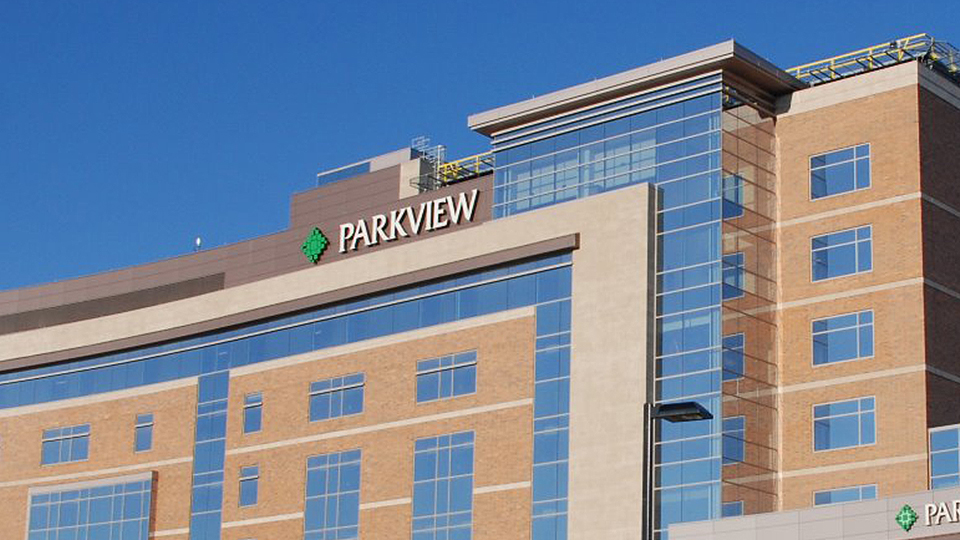Parkview Health pediatric innovation competition breeds industry development
Subscriber Benefit
As a subscriber you can listen to articles at work, in the car, or while you work out. Subscribe Now
Fort Wayne is becoming a burgeoning hub for developing pediatric medical advancements, thanks in part to Parkview Health’s innovation competition giving companies and individuals with an idea a launching pad for potentially industry-changing products and services.
In partnership with Matter, a Chicago-based health care collaborative, the health system is putting on the Healthy Kids Healthy Future: A Pediatrics Innovation Competition, which seeks support, management and treatment solutions for kids and teens with conditions like asthma, cystic fibrosis, diabetes and other developmental and behavioral disabilities.
The competition website lists several stats and provides sample patient profiles to inspire entrepreneurs, students and health care workers to come up with new solutions. Ethel Massing, Parkview innovation program leader, said they do so because people may not realize their business or idea can be tailored to assist children with chronic conditions.
“It’s really helpful for entrepreneurs to give them that lens to think about,” she said. “They might see diabetes, like I don’t have a diabetes solution, but then when they see the patient, and the needs of what those children might be — even though they’re sample children — then that might really help them to think, ‘Oh, I do have a solution for that.'”
The competition is seeking to pilot digital and device-enabled solutions or services related to chronic pediatric conditions this year, and the deadline to submit entries closes at 11:59 p.m. June 25.
Afterward, 5-7 teams will be selected as semi-finalists and will present their further developed solutions Aug. 16 to a expert selection committee. Up to five groups will be chosen as finalists, and the winner receives $10,000 for their product or service.
Those finalist teams will then work in a two-month accelerator where teams can build and test their idea with Parkview and Matter resources. In this phase, Massing said the teams will have access to clinic resources, mentoring and a variety of other support.
The final pitch day on Nov. 16 is another opportunity to present their idea potential pilot and additional funding opportunities to not only Parkview leaders but also healthcare professionals and outside investors.
Ethel Massing says anyone who wants to participate should, and the hospital system is attempting to be a resource to entrepreneurs and business owners.
The competition started out as in 2017 as a data challenge with newly-released Medicaid data. In 2019, it evolved to be both a data digging contest with an innovation competition on top of it. From there, each year has taken on different challenges: infant morality, maternal morality, infant and child health and now chronic conditions.
The competition welcomes anyone to apply from students to inspired inventors to multi-million companies. When the health system opened up the competition globally, Massing said they didn’t know what to expect but have since seen several business from countries all over the world applying. It has also led to a partnership with Enterprise Ireland, an innovation arm of the country’s government.
Since its inception, the competition has seen a variety of ideas, including surgical devices, educational tools and apps. Some examples include a self-squeezing bag pump for kids who need to be fed with a tube to their stomach and a health app for mothers of color.
With the competition, semi-finalists, finalists and winners alike have opportunities to create an on-the-market product out of their idea. Massing said it could lead to pilots, studies and other opportunities.
One of the biggest success stories, Massing said, is two Parkview employees who pitched a infant model to teach about the importance of babies sleeping on their backs and what happens internally to cause their death otherwise. After being chosen as a finalist, that idea has turned into a business, called Safe Sleep Simulation, selling those models — with its biggest buyer being the state of Indiana.
“Even if you’re not sure if you have the best solution, apply,” Massing said. “We are really good at viewing even early stage ideas, and seeing if there’s something there, and we can really help push you forward.”
